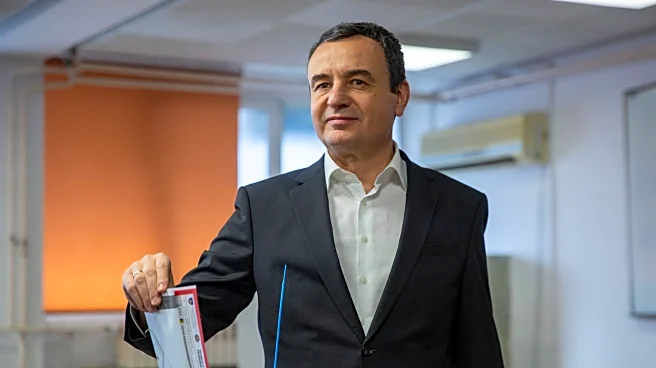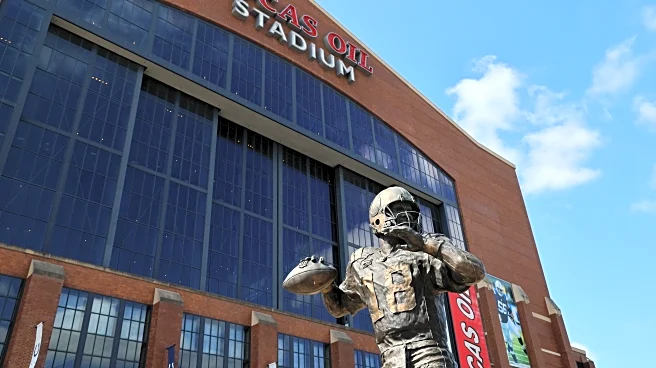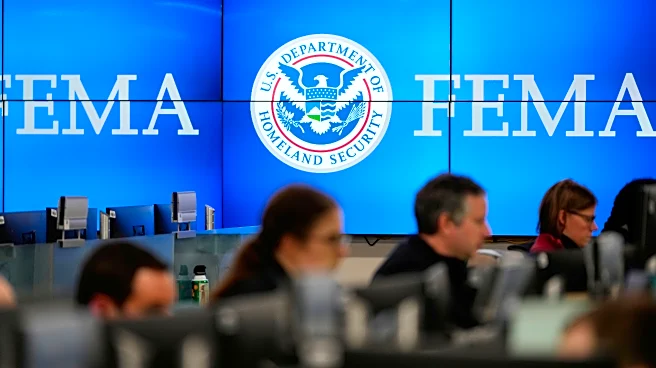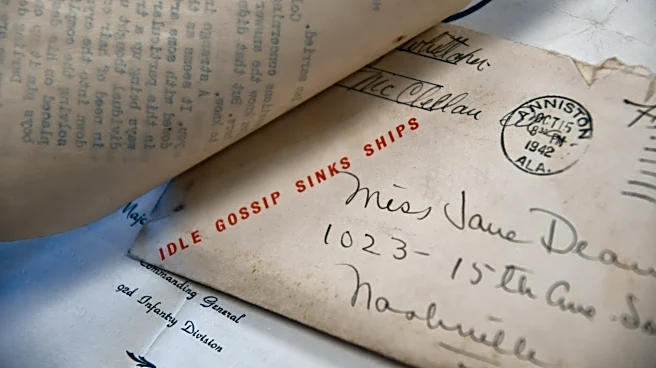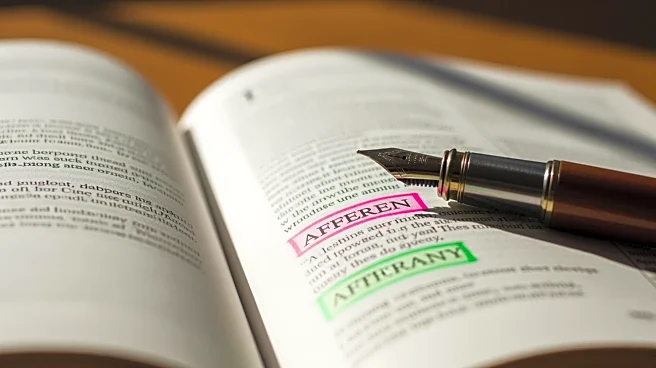What's Happening?
President Trump has expressed his belief that he deserves the Nobel Peace Prize, citing his efforts in international diplomacy, including the Abraham Accords and attempts to broker peace in various global conflicts. Despite his self-advocacy, experts and historians suggest that his candidacy is weak due to actions that contradict peace promotion, such as withdrawing the U.S. from international agreements and initiating trade wars. The Nobel Peace Prize, awarded annually to individuals or groups advancing global fellowship, will be announced on October 10 in Oslo, Norway. Trump's nomination, primarily for his role in the Abraham Accords, faces skepticism from peace studies experts who argue that his actions do not align with the ideals of the prize.
Why It's Important?
The discussion around President Trump's potential Nobel Peace Prize highlights the complexities of international diplomacy and the criteria for peace recognition. While Trump has been nominated multiple times for his efforts in halting wars and promoting peace, his actions, such as withdrawing from the World Health Organization and the Paris Accord, have raised questions about his commitment to global peace. The debate underscores the broader implications of awarding the prize, which not only recognizes peacemaking efforts but also considers the laureate's representation of the prize's values. Trump's pursuit of the award reflects the intersection of politics and international recognition, influencing perceptions of U.S. leadership in global peace efforts.
What's Next?
The Nobel Peace Prize committee will announce the recipient on October 10, with Trump remaining a controversial candidate. Despite his lobbying efforts, experts suggest his chances are slim due to the committee's emphasis on dignified representation and peace promotion. The outcome may impact Trump's international standing and influence future nominations. The prize's announcement will also highlight other potential recipients, such as organizations advocating for human rights and peace, shaping the narrative around global peace efforts and the role of the U.S. in these initiatives.
Beyond the Headlines
The pursuit of the Nobel Peace Prize by President Trump raises ethical questions about self-promotion and the criteria for peace recognition. The debate reflects broader cultural and political dimensions, questioning the alignment of Trump's actions with the prize's ideals. The controversy may influence public perception of the prize and its significance in recognizing genuine peace efforts. Additionally, the discussion highlights the role of international diplomacy in shaping global narratives and the impact of U.S. leadership on peace initiatives.




